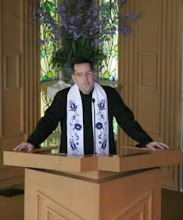About Hanukkah
A wonderful piece in the Washington Post about Hanukkah
Human Rights Central to Message of Hanukkah
By This Week's WordSaturday, December 20, 2008; B09
Rabbi Sid Schwarz is the founding rabbi of Adat Shalom Reconstructionist Congregation in Bethesda. He is president of PANIM: The Institute for Jewish Leadership and Values. His full sermon is at http://www.panim.org.
Tomorrow night, Dec. 21, which corresponds to the 25th day of Kislev on the Hebrew calendar, marks the first night of Hanukkah. Some rabbis have cynically commented that the popularity of Hanukkah is Jews' attempt to copy their gentile neighbors' observance of Christmas.
But motivations for observance notwithstanding, just as serious Christians try hard to put the Christ back into Christmas, Jews, too, must drill down to discover the power of the Hanukkah message. They will discover a message as central to Jewish teaching as any in our tradition.
It is also a message desperately needed in the world.
In 169, Antiochus Epiphanies, king of Syria, devastated Jerusalem, massacring thousands of Jews and desecrating Judaism's holiest shrine, the Temple in Jerusalem.
Under the military leadership of Judah Maccabee, Israel gradually rallied against Antiochus. On the 25th day of Kislev, the Maccabees retook Jerusalem and rededicated the Temple for Jewish worship. The Hebrew word Hanukkah literally means ''dedication.''
The custom of celebrating eight days of Hanukkah stems from the belief that the small amount of oil available to rekindle the Temple's menorah (sacred lamp) burned for eight days, even though the amount of oil was barely sufficient for one.
Whether one believes literally in the miracle of the high-octane oil, on a spiritual level Hanukkah is about a much bigger miracle. It is the miracle of faith conquering fear, of the few overcoming the many, of liberty winning out over oppression.
Every year, Hanukkah comes close to Human Rights Day, which was celebrated this year on Dec. 10. We ignore the day at our peril.
Enshrined in the Universal Declaration of Human Rights are principles at the core of democracy: the right to life, liberty and security of person; equal justice before the law; protection against cruel and degrading forms of punishment; freedom of thought, conscience and religious practice.
These principles are also at the core of Judaism. Genesis 1:27 articulates the principle that every human being is made in the image of God (tzelem elohim).
I believe that tzelem elohim is the most radical teaching in the Torah. If we internalized the message in our own behavior and got societies and nation-states to abide by it, we would be well on our way to the Messianic era. But we are far from that place!
In violation of the teachings of Torah, we stand as idle witnesses to the ongoing genocide in Darfur.
We stand as idle witnesses to the ongoing repression in Burma.
We stand as idle witnesses to the illegal rule of Robert Mugabe in Zimbabwe.
In the Hanukkah story, the Maccabees fought for liberty, for the right to practice their religion, for the dignity of human freedom. Who are the Maccabees who stand for human rights in our world today?
Nelson Mandela is a Maccabee for helping South Africa emerge from a history of apartheid. He ensured that his society would be ruled by forgiveness and reconciliation, not by vengeance over the past.
The Dalai Lama is a Maccabee for representing peaceful resistance to the Chinese occupation of his native Tibet and has become a peace emissary to the world.
Dr. Martin Luther King Jr. was a Maccabee by helping this country face its racism and showed us a path to a better America.
Recently, I participated in a national conference sponsored by Rabbis for Human Rights in Washington, D.C. The conference was infused with the Maccabee spirit because the organization understands that truth and honesty demand that we not only act on violations of human rights around the world, but that we need also look in our own back yard.
It is now common knowledge that our own country has been involved in state-sponsored torture of detainees, not only in Guantanamo but in prisons all around the globe. It has been documented that the prisoners range in age from 14 to 80. Most have been denied access to legal representation.
Not only do military experts tell us that the use of torture is ineffective in extracting information from prisoners, but the practice has made a mockery of America's claim to be fighting to protect democracy and human rights around the world.
Hanukkah coincides with the winter solstice. It is the darkest time of the year. And into that darkness, we are commanded to bring forth light.
We live in a dark time. In a world ravaged by war, prejudice, disease and now, an economic crisis that will put hundreds of thousands of people at risk of great suffering, we need to bring more light. Every day, we need more light, just like on Hanukkah. And to bring light, we need to become Maccabees -- people of faith who believe that liberty is worth fighting for, that human dignity is worth fighting for and that justice is worth fighting for.
Labels: hanukkah, human rights, torture


0 Comments:
Post a Comment
Subscribe to Post Comments [Atom]
<< Home